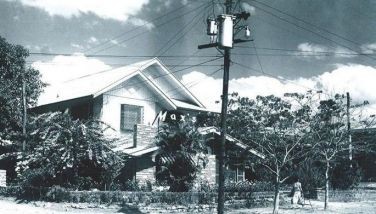Historic agreement
One hundred ninety-five countries, including the Philippines, signed an agreement at the World Climate Change Conference held in Paris, France to cut down emissions that would bring down the rise in global temperature to 1.5-2 degrees Celsius by the year 2100. The numbers may be small, but the effects of global warming are already being felt.
Currently, the world is going through the strongest El Niño on record. The country has been feeling the effects of this phenomenon since the start of the year. We have had so little rain this year, that water rationing was actually proposed to save on whatever water left on the country's dams. Irrigation to farmlands was the first to be cut. And a return to rotating brownouts loomed as the rains were scarce.
The concern is when the phenomenon ends, the opposite may happen, such as storms the likes of Yolanda, or even worse.
But while many praised and hailed the landmark agreement, seen as the world's last chance at fighting global warming, many are still skeptical that developed countries would stick to the agreement. President Barack Obama himself is hoping that the legacy he has become a part of would not be undone by the next president of a Congress not keen on reducing emissions. There has always been resistance whenever curbing the use of fossil fuels is brought to the table.
Developed countries still have an insatiable appetite for oil, coal and gas, the main causes of emissions that lead to the greenhouse effect. For as long as these fossil fuels bring in the money, they will still be the preferred source of the world's energy, at least for developed countries.
It brings us to renewable energy, and the dire need for its development. Solar, wind, water, geothermal, and even nuclear sources of energy are currently being studied to replace fossil fuels. But each has its own criticism. We all know the problem with nuclear energy once a meltdown occurs. Some complain that wind farms destroy the landscape. Solar is just too expensive right now and geothermal energy has its own unique problems. Still, there is an urgent need for these forms of energy to be developed.
Indeed, when the euphoria of the historic agreement in Paris goes down, the reality of a world headed towards ultimate disaster could very well set in, if the terms of the agreement are not met, or worse, scrapped. There are still those who debunk the global warning theory. And money is still a powerful thing on this planet, much more than survival, I would think. Ironic actually, that the very thing that gives us so much convenience in this age is also the one dooming us to a future that is just unimaginable.
I already go ballistic when the temperature hits thirty-five degrees. What more if on an ordinary day, the mercury stays at forty?
- Latest



















